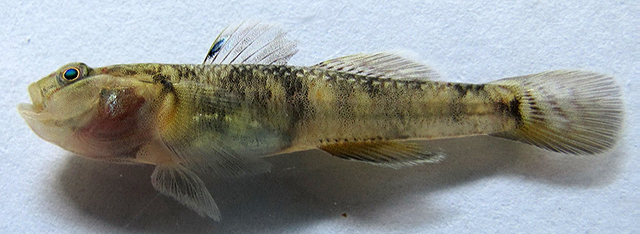| Gobiidae (Gobies), subfamily: Gobionellinae |
| 10 cm TL (male/unsexed); 6.58 cm SL (female) |
|
benthopelagic; freshwater |
| Asia: Japan, Korea, Yalu River, Tumen-ula River and Maikhe River in the basin of Peter the Great Bay. Amur River basin (Ref. 13397) and Tedzhen River basin (Ref. 39702). At least one country reports adverse ecological impact after introduction. |
|
Dorsal spines (total): 7-7; Dorsal soft rays (total): 8-8; Anal spines: 1-1; Anal soft rays: 8-8; Vertebrae: 26-26. This species is distinguished from its congeners by the following combination of characters: D1 I,8; pectoral-fin rays 18-19; predorsal scales 8-12; longitudinal scales 29-31; vertebrae 11+15 = 26; predorsal squamation composed of large ctenoid scales, reaching anteriorly to near posterior
margin of the eye; short transverse rows of sensory papillae 5-6 below eye; several short transverse
rows of sensory papillae (a part of row c) between 2 longitudinal rows of sensory papillae on cheek; head with a dark brownish gray reticulation or reddish oblique lines except for its ventral surface; upper end of pectoral-fin base with a black spot, as large as pupil; midlateral body with a longitudinal series of alternating large and small black blotches; 2-4 irregular longitudinal rows of small skyblue spots on midlateral body when alive (Ref. 104791). |
|
|
Not Evaluated (N.E.) Ref. (130435)
|
| potential pest |
|
Known from northern Vietnam (Ref. 104791). |
Source and more info: www.fishbase.org. For personal, classroom, and other internal use only. Not for publication.

